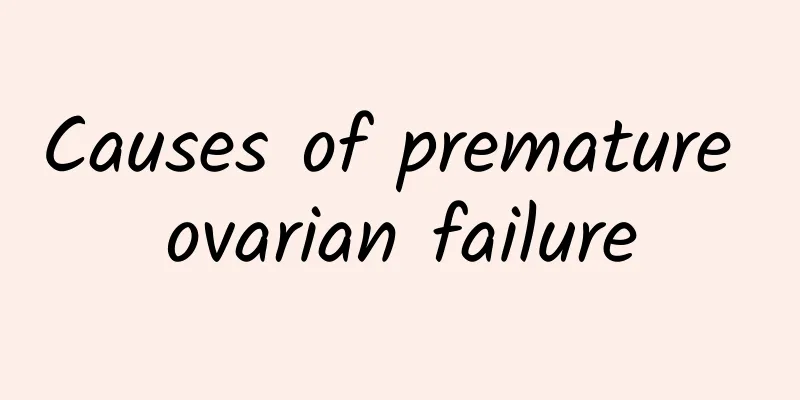Causes of premature ovarian failure

|
Causes of premature ovarian failure: Most of them may be related to genetics, gonadal dysgenesis, endocrine and immune diseases. Some patients with premature ovarian failure may also suffer from autoimmune endocrine diseases, such as adrenal insufficiency, diabetes, hyperthyroidism or hypothyroidism, which can lead to premature ovarian failure. 1. Genetic factors Genetic factors account for 100%; it is one of the important factors of premature ovarian failure; 2. External factors External factors that have a certain impact on ovarian function, such as radiotherapy, chemotherapy, immunosuppressants and surgery; 3. Reproductive factors Fertility can reduce the risk of premature menopause in nulliparous women with POF, which is related to the number of births and long-term menstrual disorders. Multiple miscarriages also increase the risk of POF; 4. Psychosocial factors Strong mental stimulation, such as long-term anxiety, depression, sadness, anger, fear and other sudden changes in living environment, can stimulate the central nervous system and seriously affect ovarian function; 5. Living environment factors Environmental toxins such as PAHs and nicotine in cigarettes can damage follicles and harm human reproductive function; 6. Excessive weight loss Excessive weight loss in women can lead to a sharp drop in body fat. If the fat rate is too low, it will affect the estrogen level in the body, because the main raw material for synthesizing estrogen is fat. When the body fat is insufficient, it will lead to estrogen deficiency. Once the estrogen decreases, it will lead to menstrual disorders, severe or even amenorrhea. Then it will affect the ovarian function and cause the ovaries to decline prematurely. 7. Infection factors Children and adolescents with viral mumps oophoritis, varicella virus, cytomegalovirus infection, and severe pelvic tuberculosis, gonorrhea, and suppurative pelvic inflammatory disease may suffer from partial or complete loss of ovarian function. |
<<: What to do with pelvic fluid after abortion? How should patients eat?
>>: I have a history of candidal vaginitis and recently found a lot of leucorrhea. What should I do?
Recommend
Leukoplakia of the vulva during menopause should not be ignored
Vulvar leukoplakia is a common disease in women a...
Experts introduce methods to prevent adnexitis
Adnexitis has become a concern for many women. Th...
Where are uterine fibroids during lactation? How to treat uterine fibroids during lactation?
Where are uterine fibroids located during lactati...
What is the best way to treat uterine fibroids?
The best method for treating uterine fibroids nee...
Irregular menstruation in women can easily lead to uterine fibroids!
Is it clear to everyone that irregular menstruati...
How to detect adnexitis
Adnexitis can be diagnosed through gynecological ...
Is there a high chance of pregnancy with cervical erosion?
Whether cervical erosion will affect the probabil...
How to treat non-menstrual bleeding
It is normal for women to bleed during their mens...
Women should pay attention to their diet after artificial abortion
Before 24 weeks of pregnancy, women use artificia...
What physical abnormalities can warn of adnexitis?
Women should always pay attention to their own ab...
Does abnormal leucorrhea affect pregnancy?
Abnormal vaginal discharge and inflammation can i...
Dietary considerations before surgery for cervical precancerous lesions
Cervical precancerous lesions are a type of gynec...
Causes of uterine fibroids in women
Uterine fibroids are a common disease among femal...
Prevention of vaginal candidiasis is the key!
What is candidal vaginitis? How to prevent candid...
Treatment principles for uterine fibroids How to treat uterine fibroids
Many women now suffer from uterine fibroids. In t...









